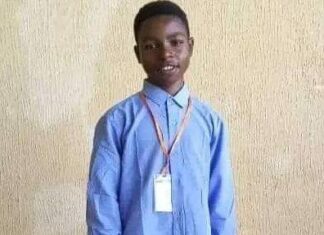Sunday, June 5 was a day of reminiscences and projections by culture enthusiasts when the Committee for Relevant Art (CORA) marked 25 years of its existence at Freedom Park, Lagos, with an Art Stampede themed: ‘25 Years of Culture Advocacy: What gains? What prospects?’
Many of the artistes who were at CORA’s very first stampede in 1991 and those who have benefitted from the organisation’s activities over the years were present at the gathering where CORA’s Secretary-General, Toyin Akinosho, recalled the organisation’s origins and what it has so far achieved.
At the inception of the quarterly CORA Art Stampede and for so many years, Akinosho said, the organisation made sure there were three musts: a musical band, kegs of palmwine and groundnuts.
“We would often have an interlude after several hours of talk shop, dance for a full hour, and then return to the conversation, which could be anything from the quality of art criticism, the effectiveness of the Nigerian gallery space, when the Nigerian movie going is to emerge, to ideas around the culture producer in the marketplace,” he said.
He explained that venues were chosen sometimes to show their possibilities as performance spaces, as was the case in 1996 when CORA had a stampede in honour of Ben Enwonwu, at the rooftop gardens of the National Theatre, a venue they were to use several times.
He recalled that there was a huge argument about where to host the second Art Stampede in September 1991 which eventually took place at Jazzville.
From 1991, CORA hosted 110 stampedes, but then started doing Monthly Highlife Party, producing Lagos the City Arts Guide, producing Artists’ Forum, and running the Lagos Book and Art Festival (LABAF).
He, however, said that there had never been a single year that CORA had less than two stampedes. “Even those years are extremely rare, perhaps two out of our 25 years of being. In the last four years, for example, the March stampede has been part of the i-Rep Film Festival. Yearly, the November Stampede is the last event of the Lagos Book and Art Festival.”
What the stampede has largely achieved, he said, was to sow ‘ideas in the air’, that being one of the reasons CORA sees itself as a landscapist.
“The LABAF, for us, has been the best example of ‘sowing seeds’. Since it started in 1999, at the onset of our return to democracy, there have been several high quality book festivals that have purchased the franchise; in Port Harcourt, Rivers State; in Ake, Ogun State; in Yenagoa, Bayelsa State; in Awka, Anambra State. The only problem is, we haven’t received payment for the franchise,” he stated.
For him, CORA has met the expectation of the arts community, as it is not a destination, really, but a work in progress.
“We didn’t set out to fulfil expectations; we wanted to instigate, to advocate for the arts. We should be tempted to claim the credit for a lot of things happening today in the creative industries,” he said.
“It has been all joy: no pain at all. We think that we should do more. Part of the joy is the growth of theatre performance, the evolution of Nigerian movie, the increasing diversity and complexities of exhibition making. One thing we are excited about is the growing number of culture events where ‘panel conversations’ are part of the menu.”
One after the other, visual artists, writers, dramatists, sculptors, movie and TV producers, actors and actresses, as well as critics, paid glowing tributes to the vision of the founders of CORA.
In his contribution to the discussion, Special Adviser on Media and Publicity to former President Goodluck Jonathan, Reuben Abati, said CORA encouraged and provided a platform for Nigerian artistes to showcase their talents. Calling on the younger generation to emulate the example set by Akinosho and Jahman Anikulapo, he said Nigerians and members of the culture community could not do without the benefits of culture advocacy.
Expressing concern over the poor reading culture in the society, Abati said, “If in 1991 we complained about the poor reading culture, I am afraid that it is worse now. The danger is that we are not encouraged to think.”
Toni Kan, a writer, said he was not convinced that Nigerians were not reading. For him, the question is not whether they are reading, rather what they are reading.
“I don’t believe that Nigerians do not read. I think it is the biggest fallacy in Nigeria. People read, but we have to ask ourselves: are we writing what they want to read? Those of us who grew up in the 1970s and 1980s had this assumption that to be a writer, you have to write like Wole Soyinka. I think that is not what people want to read.
“Every morning when I am going to work on a BRT (Bus Rapid Transit) vehicle, I see almost half of the people in the bus reading. They are reading Franklin Rogers, Jeffrey Archer and other bestsellers.
“I think Nigerian writers haven’t got the stuff that people want to read. They have been too intellectual, too Marxist and whatever. People want to read, but they are hungry for some kind of text. As writers, we should adapt our writing to meet that need.”
The stampede also had in attendance seasoned artists, writers, dramatists and culture activists, such as Prof. Duro Oni, Tolu Ajayi, Olu Amoda, Kayode Aderinokun, Ben Tomoloju, Taiwo Ajai-Lycett, Tam Fiofori, Muyiwa Majekodunmi, Wole Oguntokun, Tunji Azeez and Victor Nwokocha.

- Advertisement -
- Advertisement -
Must Read
UTME: 15-year-old Kwara public school student scores 95 in maths, 362...
A student of Government Secondary School Omu Aran in Kwara State, Olukayode Olusola, finished this year’s UTME with...











